Photo by Derek Stephen/Facebook
This was the message handed down to the infection ravaged Kashechewan First Nation by Federal Health Minister Jane Philpott in response to media questions after QP in the House of Commons on March 21.
Q. You were asked about the treatment of the infected baby whose pictures have been posted in local articles.
A. Yeah, so I have seen the pictures myself and of course I'm very concerned for the families in Kashechewan First Nation. I need people to know that Health Canada officials and our health professionals have been working in this community and will continue to do so. We have had discussions with them this morning. I can say that all of the children who are requiring care are getting the care that they need. There are some of course who have fairly significant health concerns and those who require it will be evacuated out of the community to get care if necessary. Apart from that, there are medical teams from Moose Factory (Tuesday 21st March) who are being sent into the community who will literally go door to door to identify other children who may have similar conditions that need to be addressed so that these conditions can be treated appropriately. And the other thing that we will be working on is important public health measures to help people to understand how to prevent conditions like this happening in the first place.”
Q. Is it the water?
A. So interestingly, I know that some of the media have suggested that this is related to water or that in some way water is a cause. It is our understanding that this is not the case. In fact, the water has been tested as recently as last Tuesday and we know that it meets all of the appropriate standards for safety in drinking water and for water to be used for other purposes. So this is not directly a water related concern.”
Q. Do we know the cause, without going into specifics?
A. At this point as a doctor myself of course, I am concerned with patient confidentiality. I'm very concerned when people's identity is made known, and I don't want to speak about the specifics of their conditions. Of course it's unfortunate when people are ill and I don't think we or I should be in a position to make those diagnoses and what I want you to know is that our health officials are addressing it. The particular case (Former Chief Derek Stephen's niece) that has been seen most on social media, I can tell you that that child is receiving appropriate care, that they were cared for by nurses in the community. There was consultation with a doctor and in fact there was even consultation with a specialist in Timmins to be sure that the care was the appropriate care and children who need to be treated outside of the community will receive that care.”
She continued, “And of course in all these things what's very important is prevention, to make sure that we identify all cases, that they are treated appropriately, that we prevent further cases. And as you know, with many medical conditions there are underlying causes, there are the social determinants of health that need to be addressed in these communities. The health conditions that we are seeing in First Nations communities like Kashechewan and the very serious and concerning gaps in in health outcomes are not new, unfortunately. It's a sad reality. It's a reality that we are facing front on, that I am working with my officials in Health Canada to address. We are addressing not only the acute area, we are facing how do we actually change the conditions in these communities so that we won't continue to have community after community declaring a state of emergency. It's obviously not ideal and we will do all we can to make sure that's not the case."
Charles (Charlie) Angus is the New Democratic Party (NDP) MP for the Timmins-James Bay riding. He was interviewed by a Wawatay reporter.
Q. Cause of infection is not the water according to Health Minister Jane Philpott can you comment on that.
A. I think what we are looking at is a general breakdown of health in the community. These are bacterial infections that spread very easily so it may be a combination of factors so the solutions are really specific. How do we re-establish general health in the community? This is the face of Canada's Third World.
Q. I believe you are working on convening a meeting with the Grand Chief of NAN and Federal representatives, how is this progressing?
A. We had an excellent meeting yesterday (Monday March 21st), we had medical teams and leadership from NAN as well as representatives from Government Departments. The first step is the immediate evacuation of the 16 most serious cases, then the medical teams will go from door to door because there might be many more cases (Three doctors among them Chief of Staff for the Weeneebayko Area Health Authority under the direction of Dr. Gordon Green arrived on site at 13.30pm today, also Keith Conn from Health Canada's First Nation and Inuit Health Branch is heading up there to provide support to the medical teams and reassure the community of Health Canada's commitment in helping them finding solutions to resolve this). The next step is a follow up meeting to discuss the infrastructure and other problems that are facing the community in relation to health. I think the crisis is a symptom of the general health and infrastructure crisis facing Treaty Nine Territory.
(OLDER ARTICLE FROM MARCH 20, 2016)
The former chief of Kashechewan First Nation, Derek Stephen is looking for answers.
His five month old niece Jenaya had open heart surgery to fix defective valves two months ago in Ottawa and since returning to the reserve has come down with a serious skin infection that’s causing the toddler to suffer from ongoing soreness and itching.
"She started breaking out after she returned from her operation in Ottawa that was to replace valves in her heart. Initially she was fine but a month and a half after she returned she broke into a rash, then it eventually started infecting her because she kept scratching it and so we went to the clinic many times but all they could do due to lack of resources was give us creams and baby aspirin but nothing helped. We were also advised to give her a bath twice a day but that didn’t work because it just kept drying out her skin, this went on for several weeks and I am fearing her life is in danger, I am concerned that if she doesn’t see a doctor she may get a blood infection which will affect the surgery that was performed on her. At the moment she cries all the time and to prevent her scratching because of the itchiness, we have had to put socks over her hands,” Stephen said .
Kasheckewan First Nation is located on the northern shore of the Albany River 10 km upstream from James Bay. Due to its location, the isolated community of approximately 2000 has to travel 300 miles south to reach Timmins, which is the closest urban centre with a hospital. The area is subject to periodic flooding which was so bad in 2014 that the entire population had to be evacuated to other larger centres that included Thunder Bay, Kapuskasing, Timmins, Cornwall and Greenstone. The aftermath of the flood left dangerous bacteria, which was treated with chlorine being added to the water and a breakdown of the sewage system.
Stephen continued, “People are suggesting it’s a water issue and that there needs to be an assessment done on our water system and on our infrastructure in our water plant not only that our community needs to have an environmental assessment done and for reasons because of the previous flood situation and also sewage back up. Our grounds have never been disinfected or cleaned after each flood due to our poor infrastructure system. We had a serious water crisis in 2005, the first case of infection was noticed then and it was an adult. There were a series of repairs that were needed to be done and proper mitigation to property, they were done but not really completed. We needed major repairs but only minor ones were done that were funded through INAC (Indian Northern Affairs Canada), but since then nothing has been done and our studies and proposals are still sitting waiting to be funded. The current Council have been working with them to settle these issues as previous councils have also done, but there is always an issue in relation to funding they just say not available and so nothing is done.”
A new case of child infection has recently surfaced in the community and it would seem to be an ongoing affliction affecting both adults and children to which no answer has yet been given. Stephen concluded, “I want to share this for the health and safety of my niece and to make people wake up and be aware of our situation.”






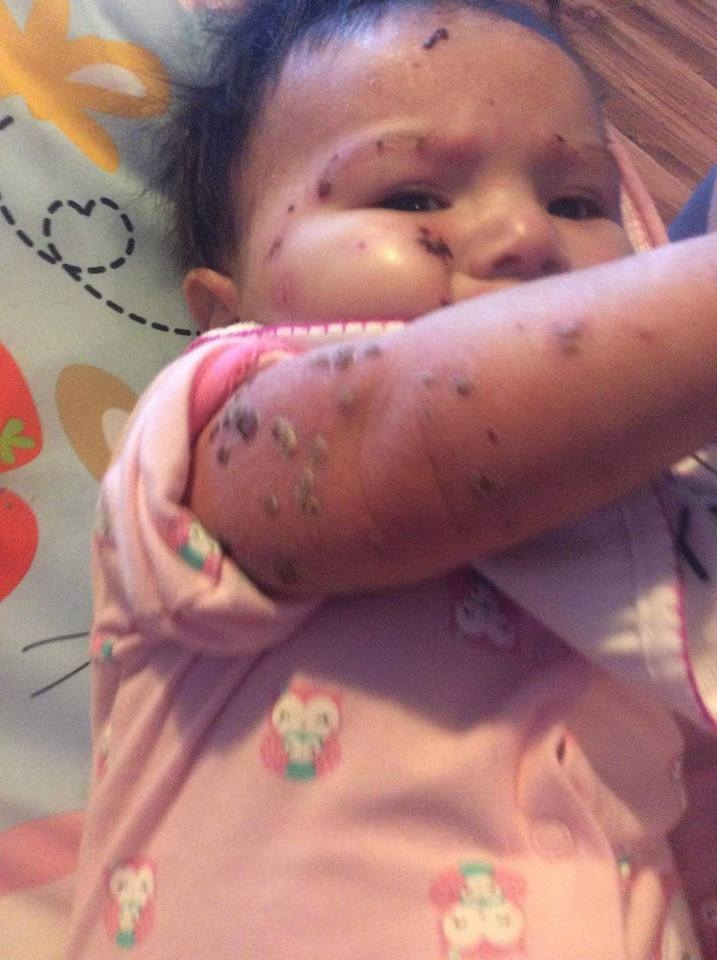
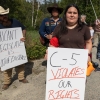
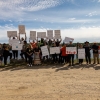
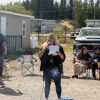
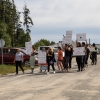







Gold has arrived. Here in the north of Ontario we see vast streams of gold shimmering across the landscape as autumn is here and the the leaves are turning...
I am the product, evolution of many thousands of years as are you. I grew up on the land in the remote far north of Ontario following in the footsteps of my...